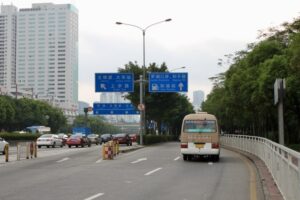Between September and December 2023, approximately 40,000 Chinese nationals involved in online fraud were arrested and deported from Myanmar. This large-scale crackdown was a coordinated effort between Myanmar and China, mainly targeting fraudulent activities in the northern Shan state. This news highlights Myanmar’s ability to forcibly deport foreign criminals, prompting discussions about similar practices in Japan.
Background and Details of the Deportation in Myanmar
The instability in Myanmar, particularly after the military coup in 2021, has led to weakened legal enforcement in some areas, allowing criminal groups to flourish. These fraud groups primarily targeted Chinese citizens through online scams, with the northern Shan state being their base of operations. This region, near the Chinese border, is rife with illegal activities like smuggling, making it a haven for such groups.
The large-scale deportation from Myanmar was a result of close cooperation between the two governments. Thousands of fraudsters were arrested and sent back to China, reflecting both countries’ firm stance against the growing online fraud problem.
How Japan Handles Foreign Criminals
In contrast, Japan faces more complexities when it comes to deporting foreign criminals. Japanese immigration law allows for deportation in cases of serious crimes committed by foreigners, but in practice, the situation is far more complicated. Factors such as the refusal of the home country to accept the deportee or human rights issues often make deportation difficult.
Japan’s laws prioritize human rights, especially for those seeking asylum or political refuge. As a result, deportation of foreign criminals can be delayed or even blocked when human rights concerns are raised. Additionally, legal professionals and human rights organizations often oppose forced deportations.
Why Deporting Foreign Criminals is Difficult in Japan
One of the key reasons why Japan struggles with deporting foreign criminals is the lack of formal repatriation agreements with certain countries. In cases where a deportee’s home country refuses to accept them, Japan’s options become limited. Moreover, legal frameworks around human rights and refugee protection further complicate matters, especially when deportees claim political persecution or asylum status.
Furthermore, when foreign criminals have long-term residence in Japan or have families, the impact on their dependents is considered, making deportation a more sensitive issue.
Comparison with Other Countries’ Deportation Systems
Countries like Myanmar and China enforce much stricter and quicker deportation procedures. For example, the large-scale deportation of Chinese nationals in Myanmar shows how quickly foreign criminals can be removed under certain circumstances. However, such tough measures often face criticism from human rights organizations, as they prioritize security over humanitarian considerations.
In contrast, Japan’s legal system is more humanitarian, leading to delays or even prevention of deportations. Japan’s approach, while protective of human rights, can sometimes allow foreign criminals to remain within its borders, which is seen as a challenge to maintaining security.
Conclusion: Future of Deportation in Japan
Addressing how Japan should handle foreign criminals is a critical issue moving forward. The current legal system makes it difficult to carry out deportations, but some argue that changes in the law or increased international cooperation could streamline the process. Strengthening repatriation agreements with foreign countries would help Japan manage such cases more efficiently.
While Japan’s approach is careful in its consideration of human rights, it also raises questions about how best to balance this with national security concerns. To improve the deportation process, legal reforms and public understanding are essential. Finding a balance between respecting human rights and ensuring public safety will be key to future discussions on the matter.




Comments